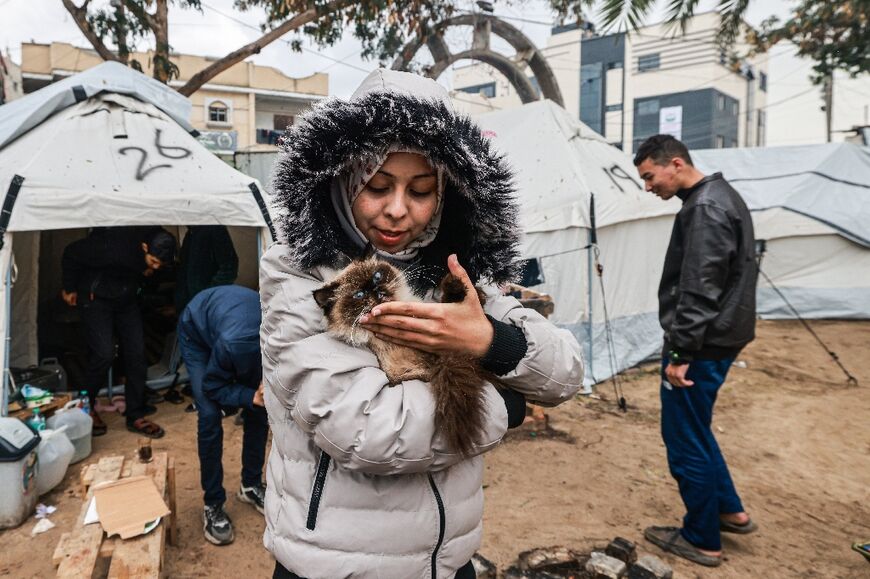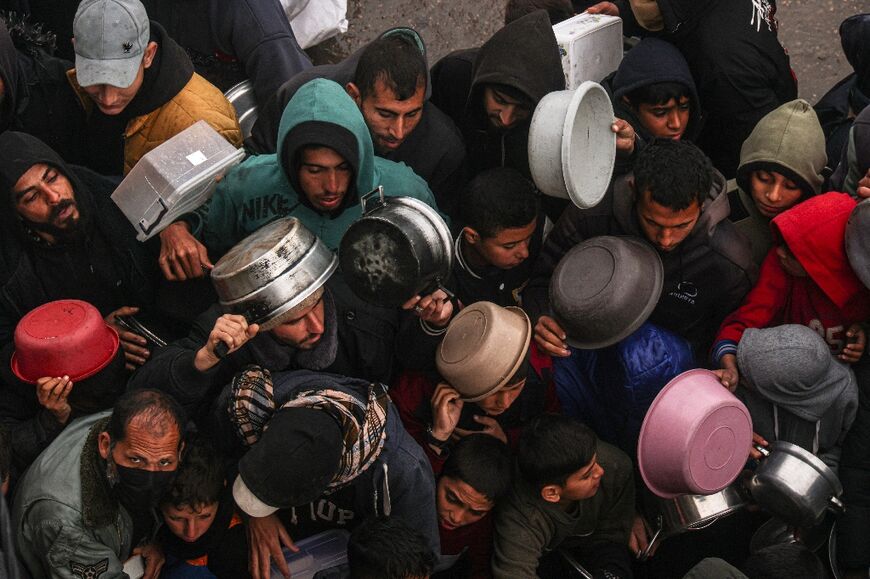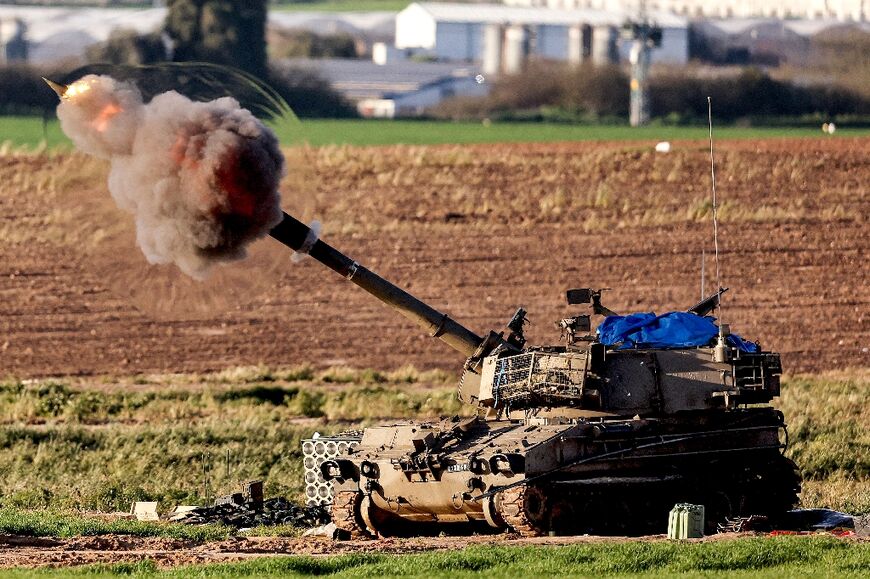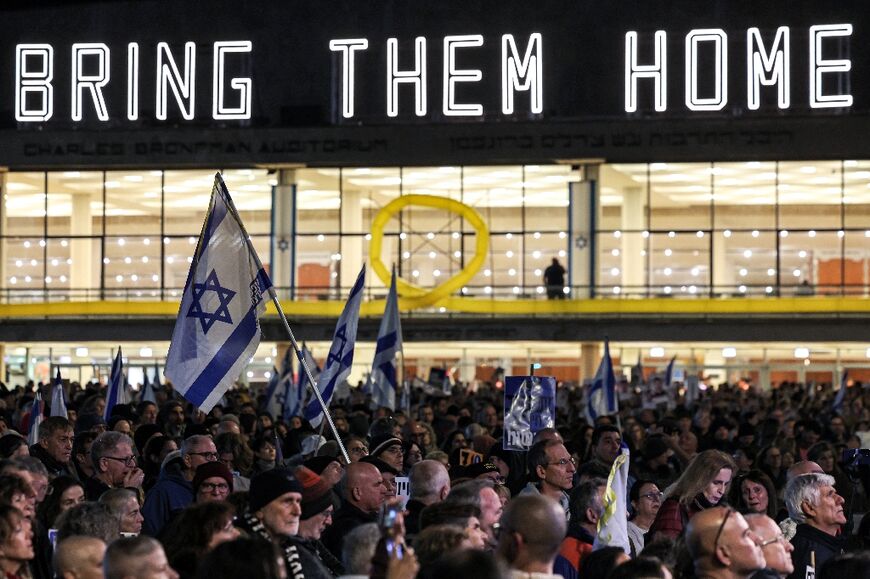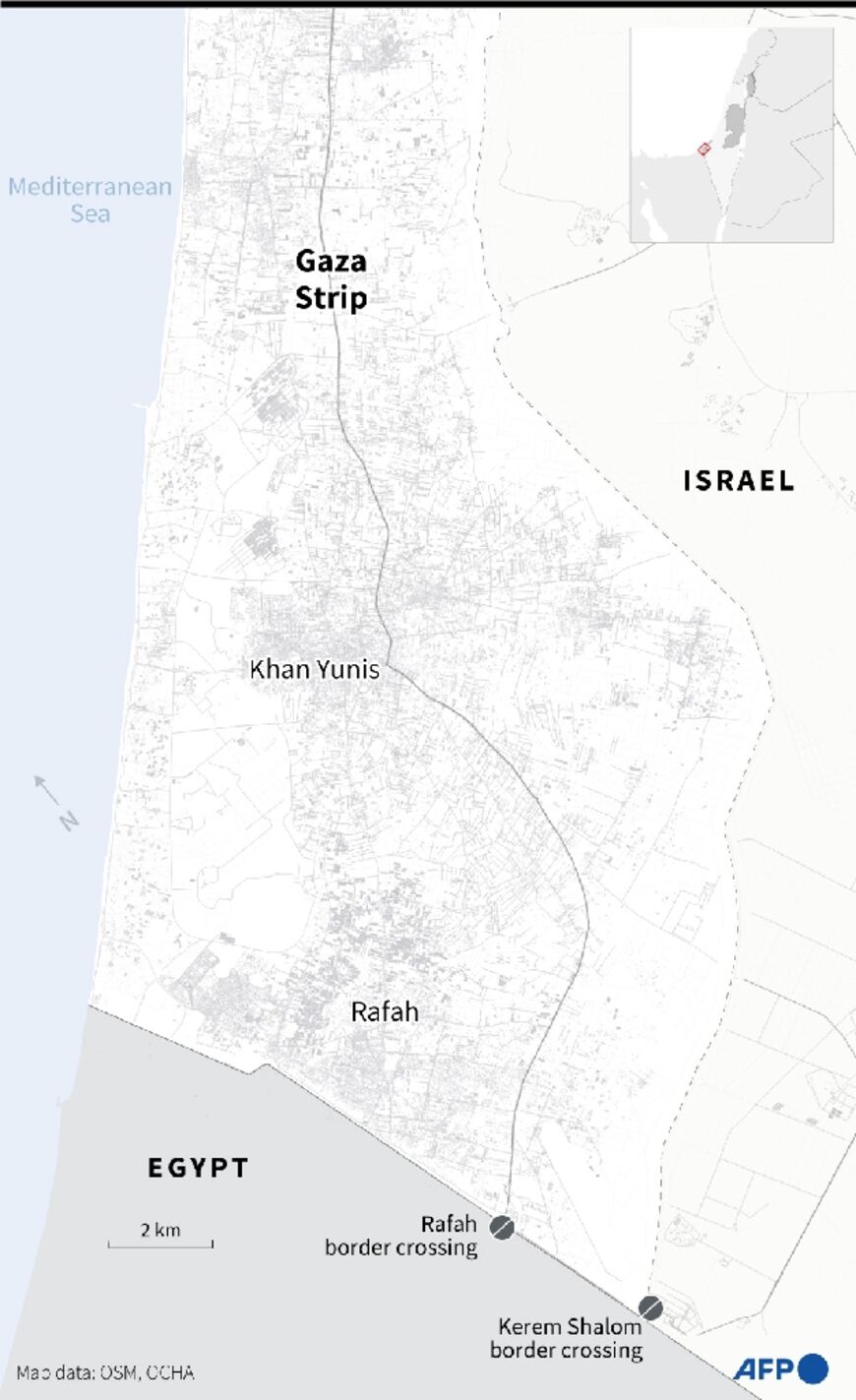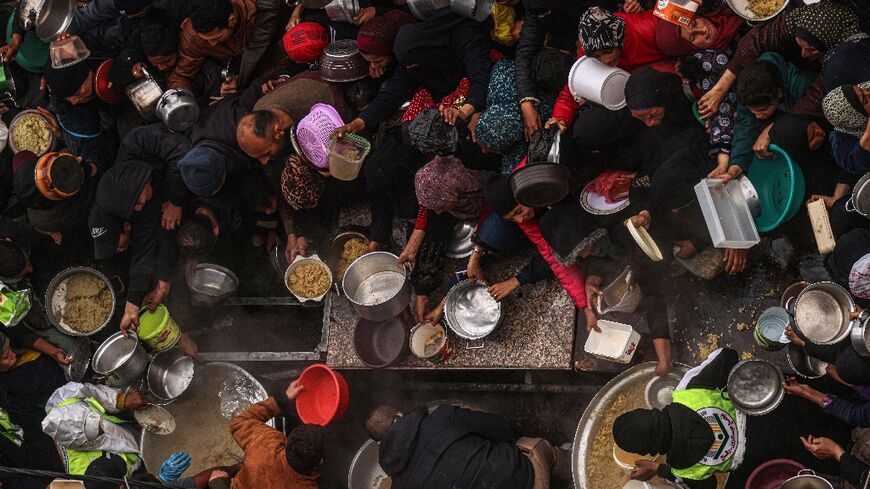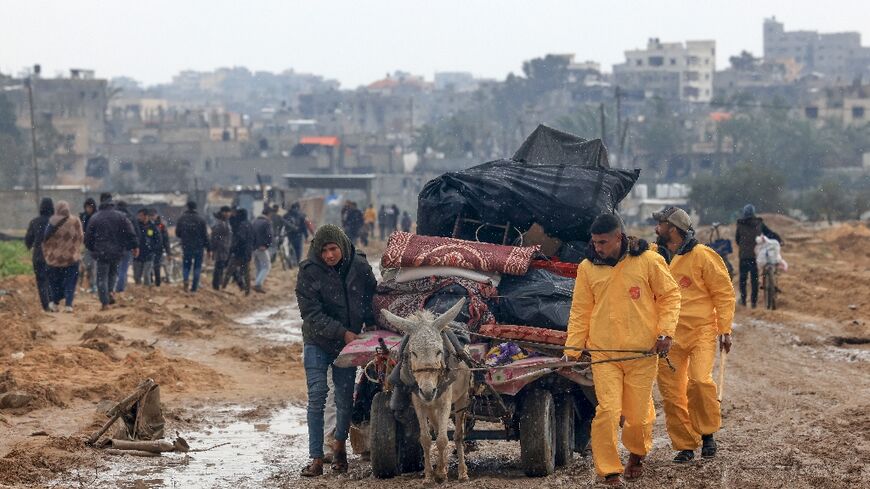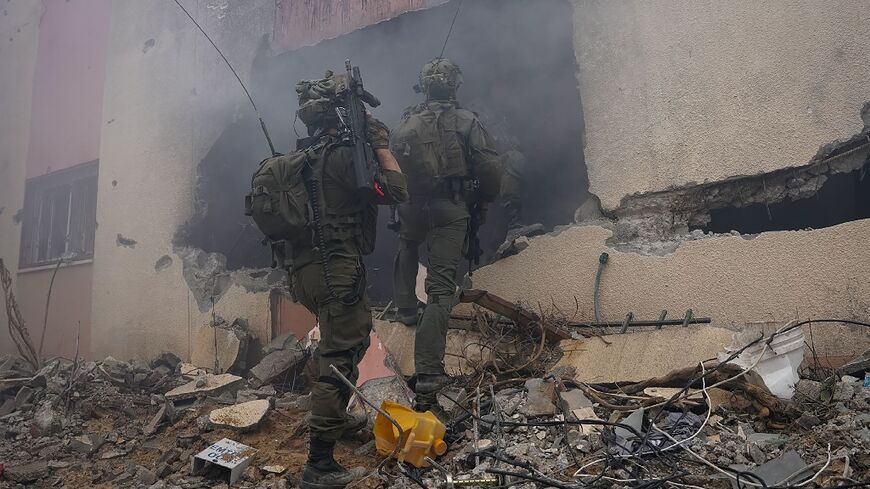Israel pounds Gaza as fears grow of push into Rafah
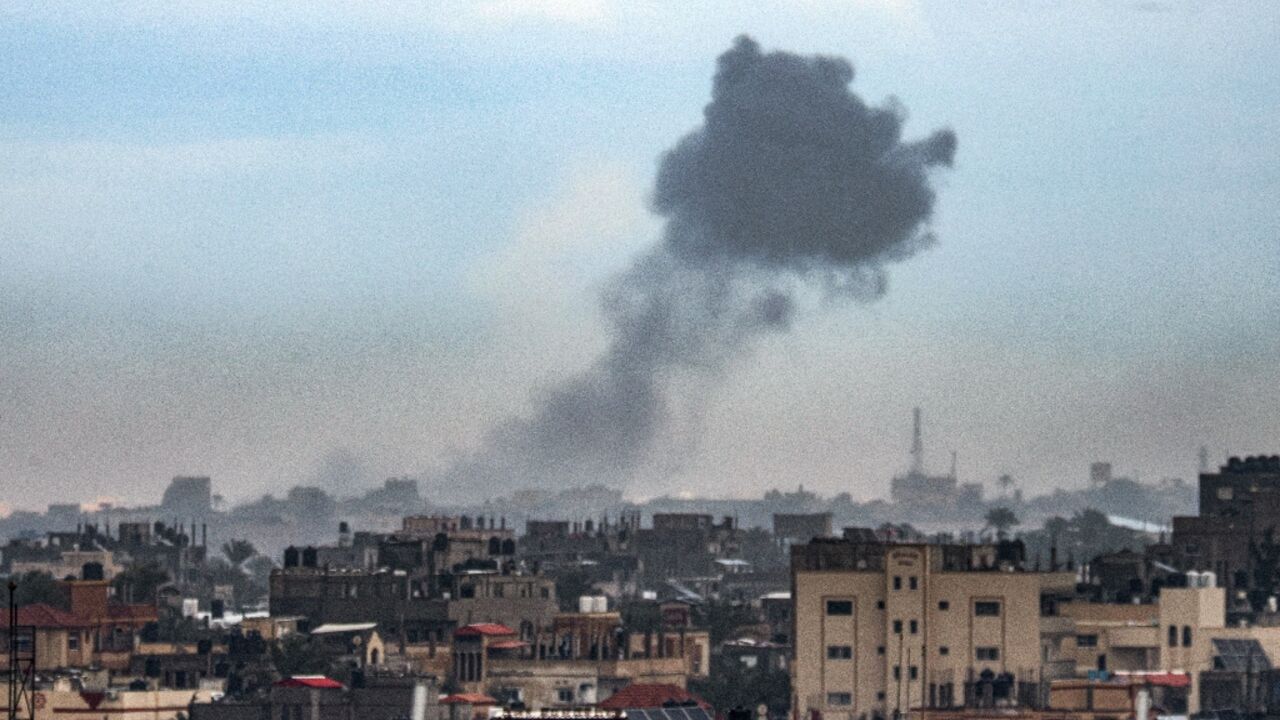
Israel pressed its blistering Gaza assault on Saturday as fears grew over a push into a southern area teeming with displaced Palestinians and Hamas said a truce deal was not yet within reach.
As fighting raged, mediation efforts to halt the nearly four-month war have gathered pace, though a Hamas official in Lebanon, Osama Hamdan, said a proposed framework was missing some details.
Hamas needed more time to "announce our position", Hamdan said, "based on... our desire to put an end as quickly as possible to the aggression that our people suffer".
An AFP journalist said air strikes and tank fire rocked Khan Yunis, southern Gaza's main city that has been the focus of Israel's offensive.
Hamas officials and the Israeli army reported battles across the besieged territory, and AFPTV footage showed smoke billowing after strikes on Rafah, in the far south.
Hundreds of thousands of Gaza's 2.4 million people displaced by the fierce fighting have fled to Rafah during the war, with their tents crammed along streets and in parks.
The city that had been home to 200,000 people now hosts more than half of Gaza's population, the United Nations said.
Civilians who fled to Rafah have been pushed up against the border with Egypt, trying to avoid parts of the city exposed to bombardment and fighting in nearby Khan Yunis.
"We are exhausted," said displaced Gazan Mahmud Abu al-Shaar, urging "a ceasefire so that we can return to our homes".
Diaa Bakroun, who shares a tent with his extended family in Rafah, said "we can't survive".
Hamas remained defiant, with an official from the Palestinian group saying it was "holding its ground" in Khan Yunis.
- 'Pressure cooker of despair' -
The United Nations humanitarian agency OCHA said it was deeply concerned about the escalation of hostilities in Khan Yunis, which has pushed more and more people south.
"Rafah is a pressure cooker of despair, and we fear for what comes next," said OCHA spokesman Jens Laerke.
Israeli Defence Minister Yoav Gallant warned on Thursday that the military -- which began its ground invasion in the territory's north and has gradually advanced south -- "will also reach Rafah".
The war was sparked by Hamas's unprecedented October 7 attack on Israel, which resulted in the deaths of about 1,160 people, mostly civilians, according to an AFP tally based on official figures.
Militants also seized around 250 hostages, and Israel says 132 remain in Gaza, including at least 27 believed to have been killed.
Vowing to eliminate Hamas, Israel launched a massive military offensive that has killed at least 27,238 people in Gaza, mostly women and children, according to the Hamas-ruled territory's health ministry.
The fighting has devastated the narrow coastal strip, while an Israeli siege has resulted in dire shortages of food, water, fuel and medicines.
The soaring civilian death toll in Gaza, as well as fears among Israelis over the fate of the hostages, have fuelled calls for a ceasefire.
In Tel Aviv, hundreds of protesters rallied for early elections and to demand action to free the remaining hostages.
Demonstrations were also held in the northern Israeli port of Haifa and near Prime Minister Benjamin Netanyahu's Jerusalem residence.
- Strikes on Lebanon -
US Secretary of State Antony Blinken will travel to the Middle East in the coming days to press a new proposal involving the release of Israeli hostages and a pause in the fighting, the State Department said.
Blinken will visit mediators Qatar and Egypt as well as Israel, the occupied West Bank and Saudi Arabia starting Sunday, it added.
His fifth trip since the war broke out comes after Qatar said there were hopes of "good news" soon about the negotiations.
A Hamas source said the group had been presented with a plan involving an initial six-week pause that would see more aid delivered into Gaza and exchanges of some Israeli hostages for Palestinian prisoners held in Israel.
Hamas's Qatar-based leader Ismail Haniyeh said any ceasefire must lead to "a full withdrawal" of Israeli troops from Gaza.
The war has sent regional tensions soaring, with a surge in attacks by Iran-backed groups in solidarity with Gaza triggering a wave of US air strikes in Iraq and Syria.
US warplanes struck "more than 85 targets" overnight, said National Security Council spokesman John Kirby, killing dozens in western Iraq and eastern Syria.
The Israeli army, which has traded near-daily fire with Lebanon's Hezbollah group since October, said it had struck "over 3,400" Hezbollah targets across southern Lebanon since the start of the war.
The violence has killed at least 218 people in south Lebanon, mostly Hezbollah fighters but also at least 26 civilians, according to an AFP tally, and displaced tens of thousands.
In northern Israel, nine soldiers and six civilians have been killed, Israeli officials have said.
Since the start of the war, Israel has also "attacked from the ground and air more than 50 such targets of Hezbollah spread throughout Syria", said military spokesman Daniel Hagari.
US forces on Saturday also struck six anti-ship missiles belonging to Yemen's Iran-backed Huthi rebels, in response to repeated attacks on Red Sea shipping vessels in solidarity with Gaza.
burs-ami/jsa


